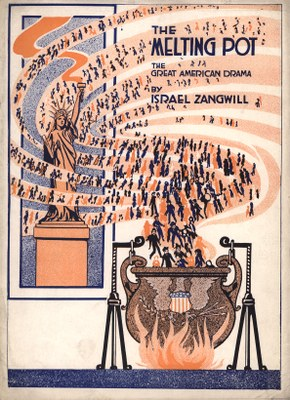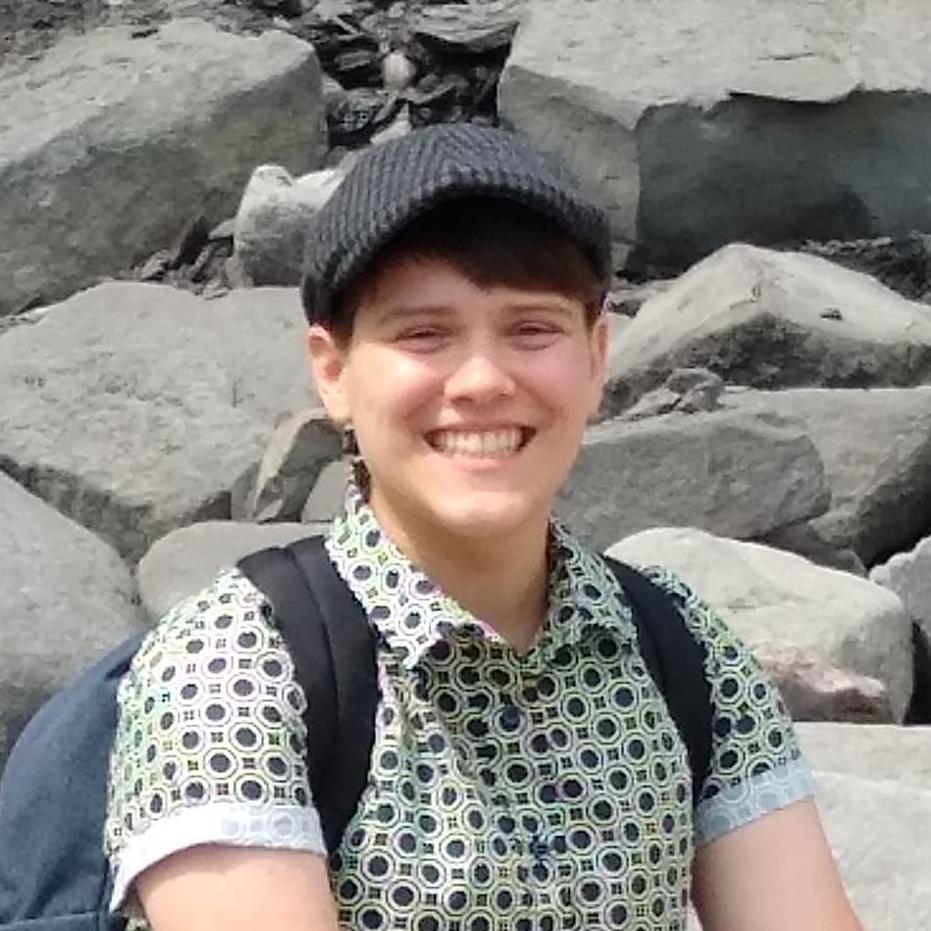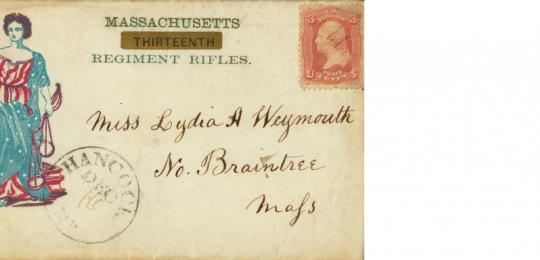MPhil in American History

Overview
Covering the history of what is now the United States from the colonial period to the modern era, the MPhil in American History helps you develop expertise and consolidate your knowledge in this expanding field of historical scholarship. At its core, the MPhil provides the opportunity to shape your own intellectual trajectory and questions through undertaking your dissertation in consultation with leading historians in the field. The individual and closely supervised dissertation work is complemented by coursework that will widen your intellectual range and by a dynamic weekly seminar.
The MPhil in American History offers taught courses and a dissertation over a 9-month programme. Students take three courses in the first two terms – a mandatory core course focusing on historiographical debates and thematic approaches, and two Option courses.
The 15–20,000 word dissertation is the centrepiece of the course, and will be planned and undertaken through close work with your supervisor. Regular supervisions will enable the identification of key questions and ideas to address, as well as archival sources and a sense of the wider significance of your research. The supervisor will be chosen prior to admission according to your research interests, and will assist you throughout the course to make the most of the intellectual resources that Cambridge can offer.
If you plan to continue onto a PhD in American History, or simply wish to explore American History at a deeper level, this is the course for you.
At a glance
All students will submit a thesis of 15,000–20,000 words, worth 70 per cent toward the final degree.
Students also produce three 3,000-4,000-word essays, two in Michaelmas term and another in Lent term; each essay is worth 10% of the final degree grade.
All students admitted to the MPhil in American History will be assigned a supervisor to work with them throughout the course, but crucially on the dissertation. Students will meet regularly with their supervisor throughout the course.
Students can expect to receive:
- regular oral feedback from their supervisor, as well as termly online feedback reports;
- written feedback on essays and assessments and an opportunity to present their work;
- oral feedback from peers during graduate workshops and seminars;
- written and oral feedback on dissertation proposal essay to be discussed with their supervisor; and
- formal written feedback from two examiners after examination of a dissertation.
If you have any questions, drop us a line on american@hist.cam.ac.uk

Course aims
- Offers students with some background in History the opportunity to consolidate their knowledge of modern American history. It is particularly appropriate for those who may wish to continue on to a PhD, at Cambridge or elsewhere, in American history. It is also well-suited for those who seek simply to explore American history at a deeper level, and to develop independent research skills while pursuing questions within the field of American history.
- Provides an opportunity for students to undertake, at postgraduate level, researching and writing a piece of original historical research under close supervision by an acknowledged expert.
- Exposes students to the full range of intellectual and professional experiences offered by Cambridge’s extensive historical community, including over thirty specialist research seminars that meet weekly or fortnightly, plus interdisciplinary forums such as CRASSH (the university’s centre for humanities and social science research). There are further opportunities for outreach and dissemination of academic research, including work in digital humanities and multi-media.
By the end of the programme, students will have:
- Knowledge of key debates and trends in American history and historiography;
- Skills in presenting work in both oral and written form;
- Research skills relevant to the specific area in which they will have written a dissertation; and
- The ability to situate their own research findings within the context of previous and current scholarly debates in the field.
The course
Core Course: Debates in American History and Historiography (Required)
This course is required of all students so that students develop a foundational understanding of key themes in American history. Students acquire the skills needed to pursue advanced research in American history.
Combining the coverage of classic texts of American historiography with readings of new work in the field, so as to bring students up to date on central debates in the field, the course covers key themes in political development, labour and capitalism, foreign relations, borderlands, race, immigration, nationality, gender, sexualities, and intellectual history.
The MPhil in American History combines taught and research elements over a 9-month full-time programme.
The taught elements include three modules, as well as training workshops and seminars, all of which are worth 30% of the final degree mark. There is also a long final thesis (15,000-20,000 words) worth 70% of the final degree mark.
Core Course: Debates in American history and historiography
- Weekly Seminars
- Assessment: Essay (3 -4,000 words)
Option 1
- Teaching: Weekly seminars
- Assessment: Essay (3-4,000 words)
Preparatory dissertation work
- Independent research and 1-on-1 supervisor meetings
- No assessment
Applying to the course
To apply to the MPhil in American History, you will need to consult the relevant pages on the Postgraduate Admissions website (click below).
Since applications are considered on a rolling basis, you are strongly advised to apply as early in the cycle as possible.
On the Postgraduate Admissions website, you will find an overview of the course structure and requirements, a funding calculator and a link to the online Applicant Portal. Your application will need to include two academic references, a transcript, a CV/ resume, evidence of competence in English, a personal development questionnaire, two samples of work and a research proposal.
Research proposals are 600–1,000 words in length and should include the following: a simple and descriptive title for the proposed research; a rationale for the research; a brief historiographic context; and an indication of the sources likely to be used. The document should be entitled ‘Statement of Intended Research’. Applicants are encouraged to nominate a preferred supervisor, and are invited to contact members of the Faculty in advance of submitting their application to discuss their project (see our Academic Directory: https://www.hist.cam.ac.uk/directory/academic-staff).
Below are some anonymised examples of research proposals, submitted by successful applicants to the MPhil in American History. You may use these to inform the structure of your submission. Please note that they are purely for guidance and not a strict representation of what is required.
American History - Research Proposal 1
American History - Research Proposal 2
Assessment & dissertation
The Cambridge MPhil is split into Part I and Part II.
Part I
Each of three modules in Michaelmas and Lent (one Compulsory Core, and two Options) will require a 3,000-4,000 words essay (or equivalent). Each will count toward 10% of the final degree mark, for a total of 30%. Taken together, these are Part I, and students must receive passing marks in order to move to Part II.
Students will also prepare a 2,000 word dissertation proposal essay due in the Lent Term. This essay will be unassessed but students will meet with their supervisor to discuss the essay and get feedback.
Part II
The Dissertation or Thesis is Part II of the course. Each student on the MPhil will prepare a thesis of 15,000-20,000 words. The thesis will be due in early-June and will count for 70% of the final degree mark.
An oral examination will only be required in cases where one of the marks is a marginal fail.
The Dissertation, or thesis, is the largest element of the course, worth 70% of the final mark.
Students are admitted to the University on the basis of the research proposal, and each student will be assigned a Supervisor who will support the preparation of a piece of original academic research. Candidates must demonstrate that they can present a coherent historical argument based upon a secure knowledge and understanding of primary sources, and they will be expected to place their research findings within the existing historiography of the field within which their subject lies.
All students should be warned that thesis supervisors are concerned to advise students in their studies, not to direct them. Students must accept responsibility for their own research activity and candidacy for a degree. Postgraduate work demands a high degree of self-discipline and organisation. Students are expected to take full responsibility for producing the required course work and thesis to the deadlines specified under the timetable for submission.
Research Seminars & Training
The American History Seminar Series involves all faculty members, postdoctoral fellows, affiliates, and graduate students in a weekly discussion of research. The research is often presented by a visitor to the University, or may be the work of a lecturer or fellow in the American History Group. This Seminar has marked the University of Cambridge out as a global centre for American History scholarship. Students are required to attend.
In addition, the American History workshop typically meets weekly during Michaelmas and Lent terms and fortnightly during Easter term. The workshop is aimed at PhD students but MPhils may attend with the permission of the convenor. The majority of workshop sessions are devoted to reading and discussing works-in-progress by PhD students; other sessions are devoted to research methods or professional skills. American History MPhil students have also benefitted from workshops run at the Faculty and University levels on oral history research methods and on Geographical Information Systems (GIS) technology.

